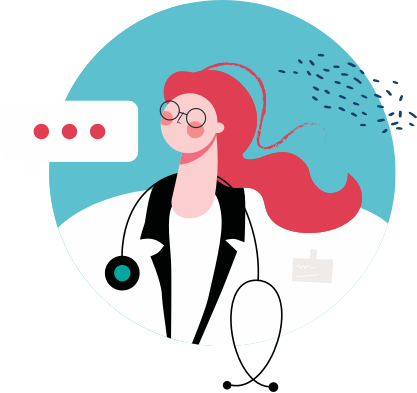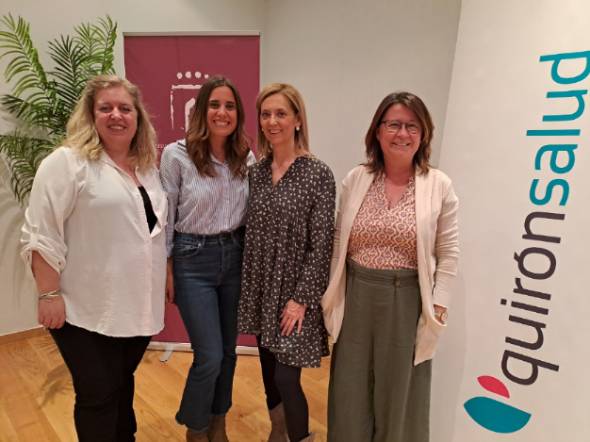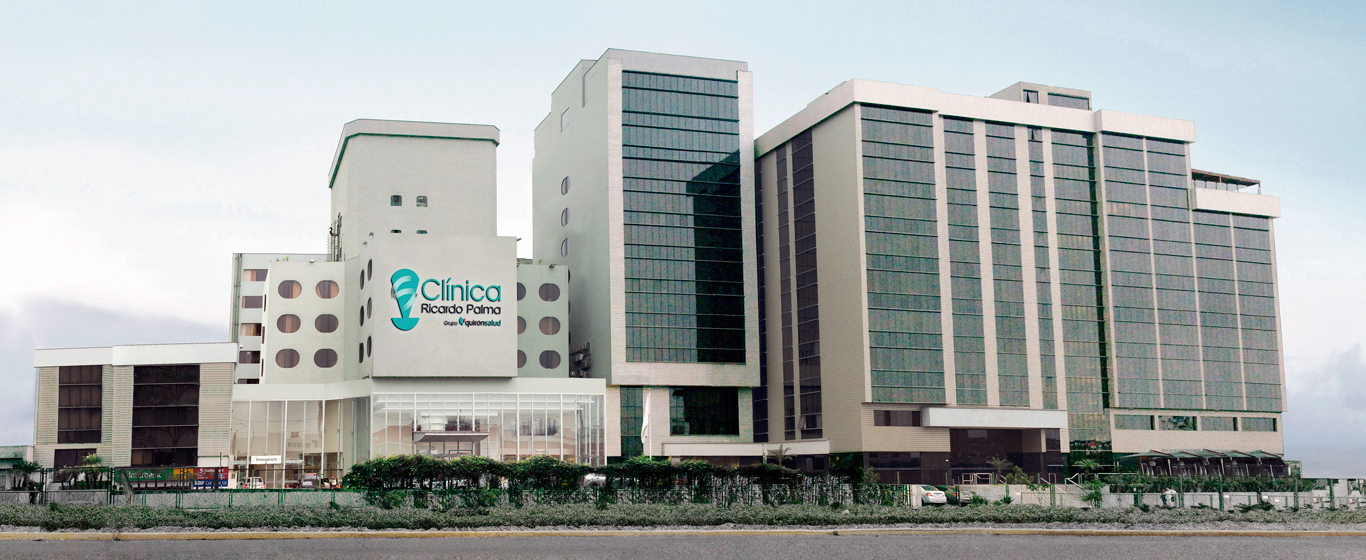Paediatric neurology
Find out everything you need to know about paediatric neurology, its field of study and the different techniques and procedures it uses. We tell you what the child neurologist treats and what to expect from the consultation. Book your appointment at one of our hospitals.

What is paediatric neurology?
Paediatric neurology is a medical speciality that manages the diagnosis and treatment of problems of the central nervous system (CNS) and the neuromuscular system during their developmental phase.
The brain, spinal cord and nerves have specific characteristics and a specific rate of development at each stage of life. Our neurologists monitor these changing processes to check whether they are developing properly or whether any disorders are apparent.
What does paediatric neurology study?
Our child neurologists study the characteristics and evolution of neurodevelopment, as well as of the nervous and neuromuscular systems. They also detect and treat any disorders that may occur up to adolescence. In addition to brain and nerve physiology, this speciality investigates the non-pathological development of these organs at each stage of growth in order to diagnose disorders more easily. Our child neurologists at Quirónsalud subspecialise in the following areas:
- Premature babies: they offer support to babies who, for various reasons, have been born small, until they reach the level of maturity appropriate for their age.
- Injuries affecting CNS development: they diagnose disorders that damage the brain or prevent nerves from communicating with the rest of the body, such as cerebral palsy or paraparesis.
- Para-infectious diseases: they examine the characteristics of bacterial or viral infections such as meningitis or acute disseminated encephalomyelitis (ADEM).
- Neuromuscular pathologies: they investigate the evolution and treatment of diseases affecting the nerves that control muscles, especially dystrophies or amyotrophic lateral sclerosis (ALS).
- Behavioural and developmental disorders: they examine the relationship between neurodevelopmental delay, language or learning difficulties and certain CNS disorders.
Which patients is it for?
Paediatric neurology is aimed at patients of growing age with neurological disorders. This consultation treats newborns, sometimes even making foetal diagnoses, and adolescents, and therefore it covers a wide range of pathologies and special characteristics.
Techniques, procedures and diagnostic methods
The paediatric neurology service uses various highly specific techniques for diagnosis to ensure that we can adapt to the singularities of our patients, their developmental stage and their size/age. Some of the most common procedures include:
- EEG (electroencephalogram): Detects problems with the brain’s electrical activity. This test can be used to detect seizures and to ensure that your child’s brain is experiencing the electrical activity expected for their age.
- Magnetic Resonance Imaging (MRI): the most commonly used procedure is brain MRI, which provides clear images of the skull, spine, brain and spinal cord without the need for radiation.
- Computerised axial tomography (TAC): uses X-rays to provide a quick, 3D view of the state of the brain with minimal exposure to ionising radiation.
- Electromyography (EMG): assesses nerve and muscle activity by means of a needle, and can diagnose diseases that cause weakness or check their development.
- Karyotyping: a study that shows the chromosomes of the child and highlights possible genetic anomalies, both numerical and structural.
- Lumbar puncture: a test in which doctors insert a small needle into the lower back to analyse cerebrospinal fluid for signs of infection, inflammation.
- Laboratory testing: Includes basic laboratory tests for electrolyte changes or signs of infection, or tests to rule out metabolic errors that explain neurological disorders.
Diseases and symptoms
Main pathologies and diseases
At Quirónsalud, our paediatric neurologists form multidisciplinary teams to offer comprehensive care to paediatric patients
in their development, to ensure they reach their maximum potential, with physiotherapists, occupational therapists and speech and language therapists being part of this team. Child neurologists also work with other paediatric specialists to care for children with more serious or complex medical problems, such as epilepsy, neonatal defects or genetic disorders, conditions that require ongoing care and support throughout childhood and adolescence.
Child neurologists mainly treat the following diseases:
- Seizures and epilepsy
- Neurodevelopmental disorders, cerebral palsy, delay in speech and in reaching significant motor developmental milestones and coordination problems.
- Headaches (cephalalgia), including migraines.
- Behavioural disorders, including attention deficit hyperactivity disorder (ADHD), tics as well as Tourette’s syndrome and sleep problems.
- Autistic spectrum disorders (ASD), Asperger’s
- Intellectual disabilities.
- Genetic disorders affecting the nervous system.
- Syncope
- Hydrocephalus
- Dystonia
- Microcephaly
- Hypotonia
- Muscle problems that can cause weakness, e.g. muscular dystrophy or neuropathy.
- Congenital malformations (problems in the formation or development of the central nervous system).
- Brain injuries (stroke, trauma, etc.).
- Autoimmune problems affecting the brain and spinal cord (such as multiple sclerosis).
- Infection or inflammation of the brain (such as meningitis or encephalitis).
- Brain tumours.
Related symptoms
The most prominent symptoms of these pathologies are:
- Vomiting
- Droopy eyelid
- Nausea
- Intellectual disability
- Trembling
- Convulsions
- Grogginess
- Blurred vision
- Mandibular pain
- Muscle stiffness
- Emotional immaturity
- Intense headache
About the paediatric neurology consultation
We solve any doubts you may have before you see the specialist
Children who visit a paediatric neurology consultation are usually referred by their paediatrician, who may have noticed specific neurodevelopmental, nerve or central nervous system disorders.
On the first appointment, the neurologist will complete the child’s medical and family history and then carry out a comprehensive physical examination. They will then order the additional tests required to complete the analysis. The examination by the neurologist begins the moment the child enters the consultation room and they start to interact.
In subsequent visits, in addition to establishing a diagnosis, they will propose a treatment and monitor the effects of the therapy and the evolution of the pathology, offering support to the child and their family.
We recommend that the people accompanying the child allow the doctor to talk to the child first, before entering into an adult conversation to clarify any remaining doubts. This will make it easier for the doctor to understand the child’s condition.
What should I take to the appointment?
All the previous reports and test results that you provide will be of great help for the doctor to make the most personalised diagnosis possible. The paediatric neurologist may need to see photos or videos of the child in their daily life to observe how they react or their difficulties in carrying out certain activities. We therefore advise you to bring a selection of the visual material which you believe to be most useful, and a detailed description of the symptoms.
You may receive a questionnaire a few days before your appointment asking about your medical history, usual medication and other specific questions that will allow us to anticipate certain aspects of your consultation, helping us to expedite and personalise your care. To do this, we recommend that you download the free Quirónsalud Patient Portal application, which will facilitate communication with your healthcare team.
You may receive a questionnaire a few days before your appointment asking about your medical history, usual medication and other specific questions that will allow us to anticipate certain aspects of your consultation, helping us expedite your treatment and offer you a more personalised care. To do this, we recommend that you download the free Quirónsalud Patient Portal application, which will facilitate communication with your healthcare team.

If you have any further questions, please contact us through the Patient Services telephone number: 900 301 013














